Monday, August 31, 2020
Lower Insulin Levels
Saturday, August 29, 2020
Words
Well it's been a long time, hiding behind people, and i am intending to do this as long as i feel comfortable. I find it hard to express myself, and typing out seems easier. I remembering bringing out my dog for a walk, and when people approaches me to talk, the conversation might start and end abruptly when i choose to walk away. I just have high anxiety talking to people, strangers or in a crowd. I wasn't like this before but slowly i became more and more quiet.
What is the latest topic that people are talking about? What should I say to this and that person? Many invisible air bubbles are above my head, but in the end, i said none. I kept quiet all the time. I pretty much wanted to open up, or crack a few jokes and make people laugh but I still can't do it.
Living a quiet life is something that i enjoyed yet it can get dull sometimes. My friend once told me that it is important to learn to get used to loneliness, and i am still learning it now. I believe that when happiness and joy is shared, it becomes double. When sadness or sorrow is shared, it becomes halved. That's the beautiful connection between friends.
The thing is I will only be talkative when i am in my bipolar manic phase, and bipolar relapse is a scary period for me, because i can't control what i say or do. It can bring embarrassment later on, and i realized that this time, the recovery was even harder. At the end of the day, i decided that i should keep my life as simple as possible. Let words be replaced by actions and smiles.
Meanwhile, i must also still learn to speak up for myself, or the people i love.
What is the latest topic that people are talking about? What should I say to this and that person? Many invisible air bubbles are above my head, but in the end, i said none. I kept quiet all the time. I pretty much wanted to open up, or crack a few jokes and make people laugh but I still can't do it.
Living a quiet life is something that i enjoyed yet it can get dull sometimes. My friend once told me that it is important to learn to get used to loneliness, and i am still learning it now. I believe that when happiness and joy is shared, it becomes double. When sadness or sorrow is shared, it becomes halved. That's the beautiful connection between friends.
The thing is I will only be talkative when i am in my bipolar manic phase, and bipolar relapse is a scary period for me, because i can't control what i say or do. It can bring embarrassment later on, and i realized that this time, the recovery was even harder. At the end of the day, i decided that i should keep my life as simple as possible. Let words be replaced by actions and smiles.
Meanwhile, i must also still learn to speak up for myself, or the people i love.
How To “Cure” IBS: The DIY Guide To Do It Naturally
Website content extracted from: https://www.dietvsdisease.org/how-to-cure-ibs/
BY GERALDINE VAN OORD (ACCREDITED PRACTISING DIETITIAN)
Irritable Bowel Syndrome (IBS) is a common condition that is characterized by ongoing digestive symptoms.
 IBS is a chronic gastrointestinal condition.
IBS is a chronic gastrointestinal condition.

 IBS sufferers tend to have an extremely sensitive gut that responds more easily to stress.
IBS sufferers tend to have an extremely sensitive gut that responds more easily to stress.
 There are several known non-FODMAP triggers of digestive problems. These include:
There are several known non-FODMAP triggers of digestive problems. These include:
 As mentioned earlier, people with IBS have an overly sensitive gut with unpredictable digestive symptoms.
As mentioned earlier, people with IBS have an overly sensitive gut with unpredictable digestive symptoms.
 Continuing on from above, the gut and the mind are strongly linked.
Continuing on from above, the gut and the mind are strongly linked.
 Probiotic supplements are a promising additional treatment option for those with IBS (7).
Probiotic supplements are a promising additional treatment option for those with IBS (7).
 As mentioned earlier, ingesting peppermint oil and herbal remedies such as Iberogast are effective ways to manage a flare in IBS symptoms.
As mentioned earlier, ingesting peppermint oil and herbal remedies such as Iberogast are effective ways to manage a flare in IBS symptoms.
BY GERALDINE VAN OORD (ACCREDITED PRACTISING DIETITIAN)
Irritable Bowel Syndrome (IBS) is a common condition that is characterized by ongoing digestive symptoms.
It can greatly lower your quality of life, and in severe cases, can even prevent sufferers from leaving their home.
This article looks at the proven natural ways to get on top of your IBS and reduce your symptoms.
Contents [hide]
What is IBS?
 IBS is a chronic gastrointestinal condition.
IBS is a chronic gastrointestinal condition.
There are no adequate medical tests that can diagnose IBS.
A person’s symptoms and also the absence of other medical conditions are used to diagnose the condition.
How To Calm An IBS Flare Up
IBS flare ups can last from a few hours to several days.
There are many ways to quickly get on top of symptoms.
Implementing these strategies, plus letting time run its course, are the most effective ways to calm an IBS flare up.
Return To A Strict Low FODMAP Diet

The low FODMAP diet is a two-phase diet, and a scientifically-proven therapy to manage IBS (1).
The first phase of the diet involves removing foods that are rich in specific sugars (FODMAPs) that are likely culprits for IBS symptoms.
Once symptom control is achieved, each group of FODMAPs are re-introduced one at a time to identify which are responsible for that individual’s symptoms.
Many consider the initial strict version of the low FODMAP diet their safe diet.
It is a good idea to return to this baseline diet during a flare to let your symptoms pass.
Take Peppermint Oil
It is thought to work by relaxing the muscles found in the stomach and digestive tract, which can then speed up or slow down the motility of the GI tract (3, 4).
This results in relief from symptoms such as nausea, bloating, flatulence and altered bowel habits.
Use A Hot Water Bottle
Heat therapy can offer quick relief from painful IBS symptoms by relaxing the muscles in the GI tract.
Do Things That Will Help You Feel More Relaxed
 IBS sufferers tend to have an extremely sensitive gut that responds more easily to stress.
IBS sufferers tend to have an extremely sensitive gut that responds more easily to stress.
Trying strategies that make you feel more relaxed can reduce the sensitivity of the gut and help overcome your IBS symptoms faster.
Some relaxation methods include mindfulness meditation, yoga or even a gentle walk if you’re feeling up to it.
Treat Your Symptoms With Appropriate Supplements Or Medication
It contains a mixture of herbs that can assist abdominal pain, flatulence and altered bowel habits.
There may also be some over the counter medication that can help IBS symptoms.
It is best to discuss your needs with a pharmacist.
Summary: There are a number of strategies that could be used to calm an IBS flare up. Symptoms will also pass with time.
How To Cure IBS Naturally
There is no “cure” for IBS at the moment, however over the long term the symptoms can be managed effectively with a number of strategies.
Try The Low FODMAP Diet From Start To Finish
Continuing on from above, the low FODMAP diet contains two main phases.
The first phase reduces all high FODMAP foods to confirm a reaction to FODMAPs.
Then the second phase involves testing each FODMAP group one at a time to identify which groups you have been reacting to and at what level.
This second phase of the diet is arguably the most important part of the diet as it enables you to learn what your individual tolerance level is to different FODMAPs, and reintroduce some of your favourite foods as well.
Reduce Your Intake Of Known Gut Irritants
 There are several known non-FODMAP triggers of digestive problems. These include:
There are several known non-FODMAP triggers of digestive problems. These include:- caffeine
- alcohol
- fatty foods and
- spicy foods
Removing these triggers from your diet can be an another way to effectively manage IBS in the long term.
More Or Less Fiber May Help
The evidence for the best type and amount of fiber in the diet is conflicting.
Some people are certain that a high fiber diet helps their symptoms, whereas others find a low fiber diet is more effective.
The type of fiber supplement that has the most research completed on it is psyllium husk (6).
Psyllium husk is a soluble fiber, meaning that it dissolves in water.
It soaks up water like a sponge to add bulk to loose stools, but also softens hard stools to help them pass easier.
Try The FAILSAFE Diet
The FAILSAFE diet  is an alternative diet therapy that can be considered when the low FODMAP diet doesn’t provide good symptom relief.
is an alternative diet therapy that can be considered when the low FODMAP diet doesn’t provide good symptom relief.
 is an alternative diet therapy that can be considered when the low FODMAP diet doesn’t provide good symptom relief.
is an alternative diet therapy that can be considered when the low FODMAP diet doesn’t provide good symptom relief.
It’s another type of elimination diet that aims to identify a sensitivity to particular natural food chemicals and artificial food additives.
Similar to the low FODMAP diet, there are two main phases that involve an elimination phase to confirm a reaction, followed by a reintroduction process.
Manage Your Stress And Anxiety
 As mentioned earlier, people with IBS have an overly sensitive gut with unpredictable digestive symptoms.
As mentioned earlier, people with IBS have an overly sensitive gut with unpredictable digestive symptoms.
This unpredictability is highly stressful and anxiety-provoking.
Yet, this stress and anxiety can make digestive symptoms worse.
It can be seen as an unpleasant feedback loop.
For this reason, practicing ways to manage stress and anxiety helps to keep on top of IBS symptoms in the long term.
Mindfulness meditation can be useful, as can yoga or some moderate exercise.
Psychological Therapies For IBS
 Continuing on from above, the gut and the mind are strongly linked.
Continuing on from above, the gut and the mind are strongly linked.
If the mind is calm, then gut symptoms improve.
Thus, it makes sense that psychological therapies play an important role in keeping IBS symptoms to a minimum.
Try A Probiotic Supplement
 Probiotic supplements are a promising additional treatment option for those with IBS (7).
Probiotic supplements are a promising additional treatment option for those with IBS (7).
The term ‘probiotics’ refers to beneficial bacteria that we consume specifically for health benefits.
However, probiotic supplements are not created equal.
They vary in the strains they contain and the amounts.
A comprehensive review on the best probiotics for IBS can be found here.
Try Peppermint Oil And Other Herbal Remedies
 As mentioned earlier, ingesting peppermint oil and herbal remedies such as Iberogast are effective ways to manage a flare in IBS symptoms.
As mentioned earlier, ingesting peppermint oil and herbal remedies such as Iberogast are effective ways to manage a flare in IBS symptoms.
However, they may also be effective in managing IBS symptoms long term when taken regularly as a precaution.
Summary: To date, there is no cure for IBS. However, it can be managed over the long term with a number of diet and lifestyle strategies.
Effective IBS Treatment Is Achievable
While science is yet to uncover a cure for IBS, there are a number of short term and long term strategies that are effective.
IBS treatment starts with diet and lifestyle – minimising triggers, identifying food intolerance, and managing stress and anxiety.
There are also a number of additional strategies that can be used to manage IBS over the long term including a change in fiber intake, probiotics, and herbal remedies.
Top 10 Natural Ways to Increase Your White Blood Cell Count and Immune System
Website content extracted from: https://naturalon.com/top-10-natural-ways-increase-white-blood-cell-count-immune-system/view-all/
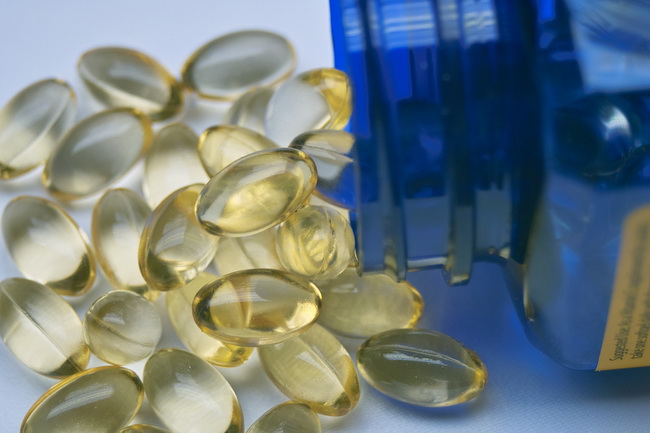
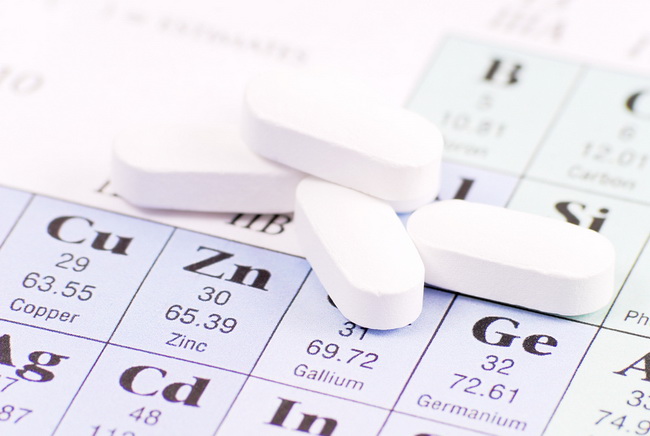
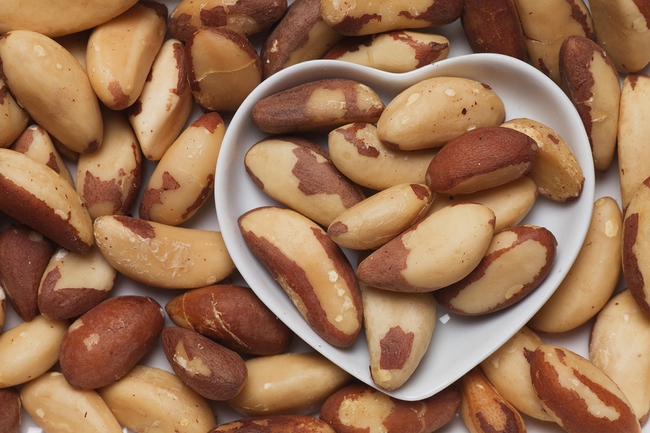
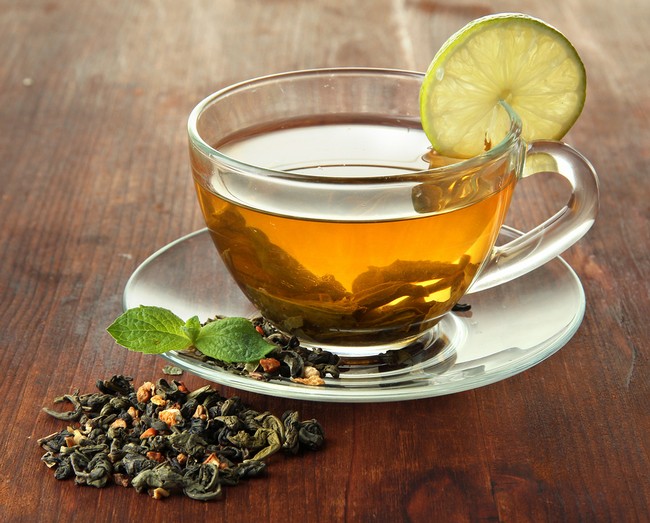
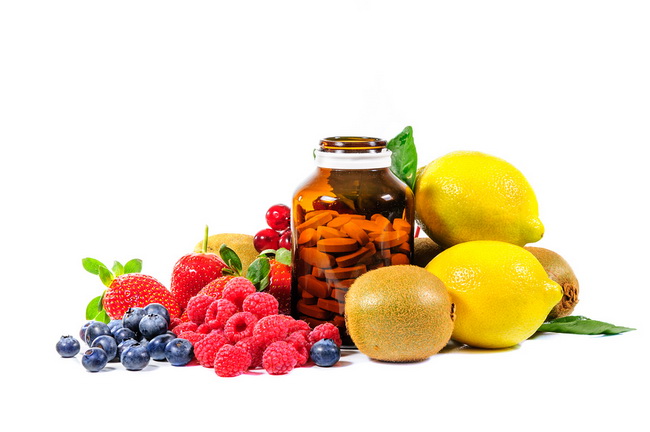
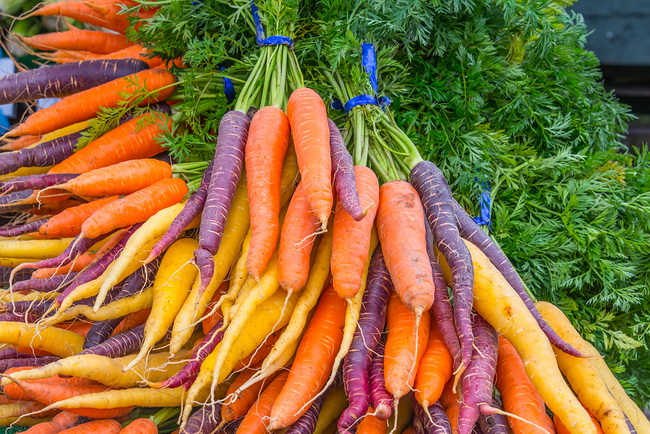

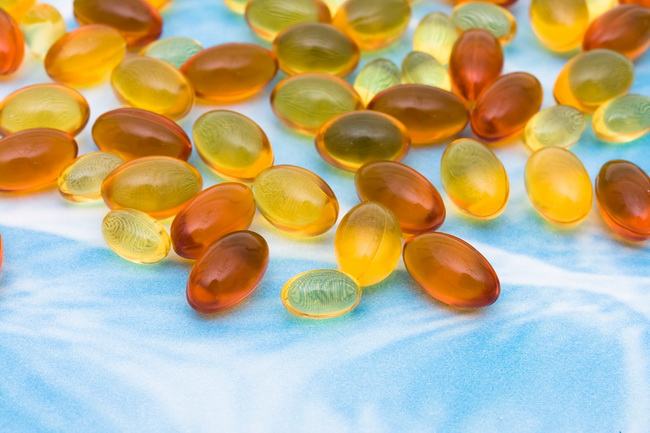



Photo credit: bigstock.com
When you feed your immune system, you improve its fighting power. Your immune system and white blood cells work together to fight infections. White blood cells are produced in our bone marrow. A normal white blood cell count is somewhere in the area of 5,000 to 10,000 white blood cells per microliter of blood. Persons with less than 3,500 are considered to a low count, also called neutropenia. Numbers of less than 1,000 are considered to be dangerously low and an indicator that the person is at great risk of developing an infection of some kind.
You can naturally increase your white blood cell count, which in turn improves your overall immune system, by making sure you consume sufficient amounts of the following 10 foods and/or vitamins and minerals. If you find you pick up every little cold or flu bug that goes by, you can turn things around naturally. Keep reading to find out the 10 natural ways to improve your white blood cell count and immune system into high gear.
1. Vitamin E
Although this little vitamin doesn’t get the press that vitamin C does, it’s one of the most important antioxidant and immune boosters around.
Vitamin E naturally stimulates the production of what are known as “killer cells.” These are cells that seek out and kill off germs and cancer cells. Vitamin E also improves the production of B-cells. These are cells from your immune system that produce antibodies that will kill bacteria. Vitamin E supplements may actually reverse of the decline in immune system response that is often seen in the elderly. The Harvard School of Public Health studies about 87,000 nurses and found that vitamin E supplements cut the risk of heart attacks by an incredible 50 percent!
It’s not that hard to get 60mg of vitamin E each day from your diet. Seeds and grains will get you most of what you need, but most people find it difficult to consistently get that 60mg every single day, and if you smoke, don’t exercise, or drink more than your share of alcohol, you will need between 100 to 40mg each day to keep your immune system strong. Taking supplements is a good idea for most people.

Photo credit: bigstock.com
2. Zinc
This little-thought-of mineral is vital for the production of white blood cells that fight infection. Zinc also helps them fight much more aggressively.
Zinc increases the number of killer cells and allows white blood cells to release more antibodies in their fight against the bad guys. Studies show that zinc supplements slow the growth of cancer and increase the number of infection fighting T-cells. One thing about zinc, however, is that you can overdo it.
Consuming more than 75mg per day actually inhibits immune function. Aim to get most of your zinc from your diet. 15 to 25mg is sufficient for most people.

Photo credit: bigstock.com
3. Selenium
Selenium can help build up your white blood cells, according to the University of Maryland Medical Center, and some other studies show that selenium itself can help fight infections.
One study showed that when elderly persons took both selenium supplements and zinc, their immune systems responded better to the flu vaccine than those who only consumed a placebo.

Photo credit: bigstock.com
4. Green Tea
Green tea is absolutely packed full of antioxidants – that makes it a great detox tea as well. It supports the immune system and helps your body fight infection.
One study shows that green tea replicates some viruses, which means you won’t lose as many white blood cells fighting the virus itself.
Green tea encourages your body to produce more white blood cells.

Photo credit: bigstock.com
5. Vitamin C
One of the top vitamins that will improve your immune system in a jiffy. There has been more research done on the effects of vitamin C and your immune system than any other vitamin or nutrient around. Vitamin C is found naturally in almost all fruits and is very inexpensive in supplement form. In fact, you can find vitamin C fortified just about anything if you look around a bit.
Vitamin C improves your immune system by increasing your body’s production of white blood cells and antibodies that fight viruses and bacteria. It also increases the levels of interferon, the antibody that coats the surfaces of your cells and stops viruses from entering them to begin with.
Now contrary to popular myth, you don’t have to take massive amount to get a boost in your immune system. Around 200mgs per day will do the trick and you can generally get that, and sometimes more, simply from eating plenty of fruits and vegetables during your daily diet. If you do choose to take supplements, spread the dosage out during the day so you don’t end up peeing it all away.

Photo credit: bigstock.com
6. Carotenoids
Beta-carotene will increase the number of natural killer cells, T-cells, combined with being a powerful antioxidant that cleans up those nasty free radicals that cause our bodies so much damage and premature aging.
Studies show that foods that have beta carotene can lower your risk of heart attack and stoke as well. Find out health benefits of carrots.

Photo credit: bigstock.com
7. Omega-3 Fatty Acids
Omega-3 fatty acids, which are found in fatty fish such as salmon and mackerel, along with flax oil, improve your immune system by increasing something called phagocytes. Read more about omega-3 foods.
These are white blood cells that literally eat up bacteria. Perhaps this is why grandmothers everywhere used to insist on that awful tablespoon of cod liver oil each night! Essential fatty acids protect the body also from damage that occurs should the body over-react to an infection. One study found that when children were given just a half a teaspoon of flax oil each day, they experienced fewer colds and other respiratory infections.

Photo credit: bigstock.com
8. Vitamin A
Increasing your daily intake of vitamin A will increase the number of lymphocyte white blood cells in your body.
These cells attack and kill foreign invaders as well as cancer cells.
Your body does produce some vitamin A, but a good supplement will add to your immune fighting capabilities.

Photo credit: bigstock.com
9. Yogurt
Over and over studies show that persons who consumed probiotics, such as the kind in yogurt, had stronger immune systems than those who did not. Probiotics appear to improve and boost your white blood cell count.
German researchers conducted a study that was published in the Clinical Nutrition and it showed that when they gave half of 500 healthy adults probiotic supplements over a three month period, the group who received the supplements had fewer cases of the cold and its symptoms, such as itchy throat, stuffy nose, body aches, and minor headaches, as well as having high white blood cell counts.

Photo credit: bigstock.com
10. Garlic
It seems as if garlic shows up on every “top 10” healthy list, doesn’t it? Well, there are plenty of good reasons why. Garlic promotes the ability of white blood cells to fight off the bad guys and stimulates other immune cells into action.
A study in 2002 showed that when rats were fed garlic, they had significant increases in their overall white blood cell count. The properties in garlic that seem to improve the immune system lie in its sulfur compounds such as sulfides and alllicin.
Garlic is also an antioxidant that cuts down on the build-up of free radicals in the blood. Cultures that have garlic rich foods have lower rates of intestinal cancers. Avoid these mistakes when using garlic medicinally.
Subscribe to:
Comments (Atom)
Tea for fresh breath
Website: 1 尧妈汤厨发布了一篇小红书笔记,快来看吧! 😆 4zUicIOeSVfYiUW 😆 http://xhslink.com/uhQqLj,复制本条信息,打开【小红书】App查看精彩内容! Tea Ingredients: 竹蔗 Dried Sugar Can...
-
Website: 6 Acupuncture Points to Reduce Chronic Inflammation - Take the Holistic Route (modernreflexology.com) Acupuncture is a technique ...
-
Website: 1 尧妈汤厨发布了一篇小红书笔记,快来看吧! 😆 4zUicIOeSVfYiUW 😆 http://xhslink.com/uhQqLj,复制本条信息,打开【小红书】App查看精彩内容! Tea Ingredients: 竹蔗 Dried Sugar Can...
